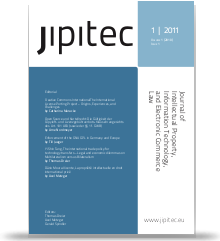Commission’s Proposal for Amending the Insolvency Regulation
The European Commission released on December 12 its Proposal for amending the 1346/2000 Regulation on Insolvency Proceedings.
The Commission summarizes its Proposal as follows:
• Scope: The proposal extends the scope of the Regulation by revising the
definition of insolvency proceedings to include hybrid and pre-insolvency
proceedings as well as debt discharge proceedings and other insolvency
proceedings for natural persons which currently do not fit the definition;• Jurisdiction: The proposal clarifies the jurisdiction rules and improves the
procedural framework for determining jurisdiction;• Secondary proceedings: the proposal provides for a more efficient
administration of insolvency proceedings by enabling the court to refuse
the opening of secondary proceedings if this is not necessary to protect the
interests of local creditors, by abolishing the requirement that secondary
proceedings must be winding-up proceedings and by improving the
cooperation between main and secondary proceedings, in particular by
extending the cooperation requirements to the courts involved;• Publicity of proceedings and lodging of claims: The proposal requires
Member States to publish the relevant court decisions in cross-border
insolvency cases in a publicly accessible electronic register and provides
for the interconnection of national insolvency registers. It also introduces
standard forms for the lodging of claims;• Groups of companies: The proposal provides for a coordination of the
insolvency proceedings concerning different members of the same group of
companies by obliging the liquidators and courts involved in the different
main proceedings to cooperate and communicate with each other; in
addition, it gives the liquidators involved in such proceedings the
procedural tools to request a stay of the respective other proceedings and to
propose a rescue plan for the members of the group subject to insolvency
proceedings.




